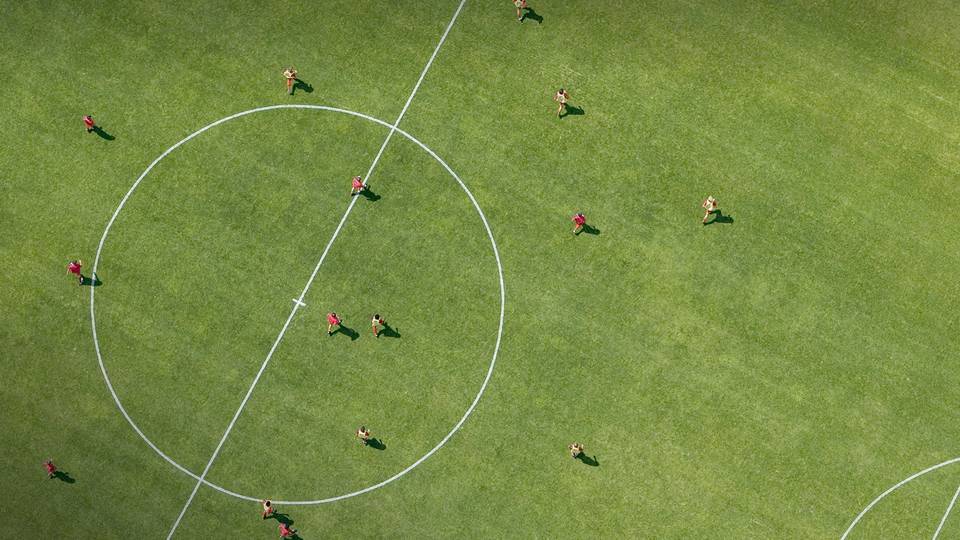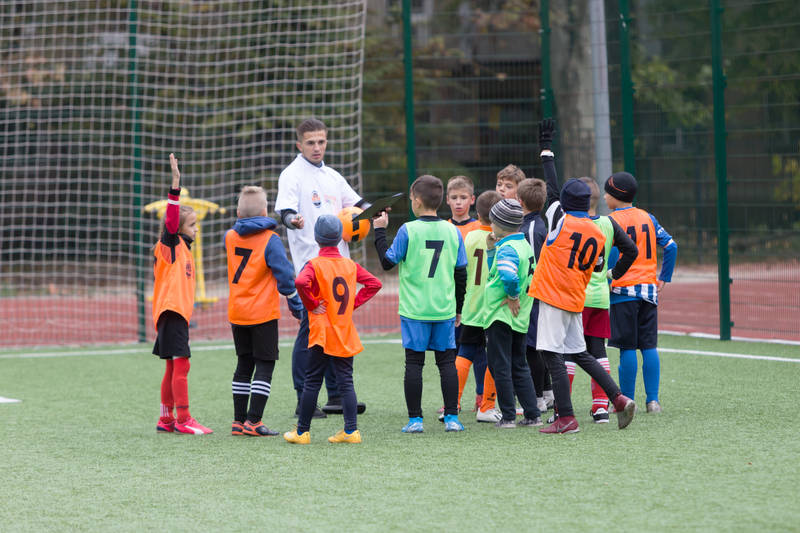Organising football for under-7s provides children with their first taste of structured play in a supportive environment. Many local clubs across the UK offer U7 programmes where young players can develop basic skills while having fun with peers. The U7 Football Organisation focuses on creating age-appropriate training sessions that emphasise participation over competition, ensuring all children receive equal playing time regardless of ability.
Youth football at this level is about introducing fundamental movement skills and simple football concepts through games and activities. Coaches work with small-sided formats—typically 5v5—on reduced pitch sizes with smaller goals to ensure players get plenty of touches on the ball. The emphasis remains firmly on enjoyment rather than results, with many leagues operating without formal stats or published scores.
Parents considering enrolling their children in U7 football should look for programmes that prioritise player development and positive experiences. Quality organisations provide qualified coaches who understand child development and create safe, inclusive environments where young footballers can thrive. Some clubs even utilise simple tracking tools to monitor player engagement and progress, helping coaches tailor sessions to meet the needs of all participants.
Foundations of U7 Football
U7 football forms the critical first steps in a child's footballing journey, establishing fundamental skills and fostering a love for the game that can last a lifetime.
Understanding U7 Football
U7 football represents an introductory level of youth football designed specifically for children under 7 years old. At this stage, the focus lies firmly on developing basic ball control techniques and fostering enjoyment rather than competition.
Games typically feature smaller teams (usually 5v5) playing on reduced-size pitches with smaller goals. This format allows young players more touches of the ball and greater involvement in play.
Training sessions emphasise fundamental skills through fun activities. Coaches demonstrate basic Coerver foundation touches, encouraging players to practice dribbling, tackling, and passing in an engaging environment.
The primary aim at U7 level isn't winning matches but building confidence with the ball at feet. Players learn spatial awareness, basic teamwork concepts, and simple decision-making while developing coordination and motor skills.
Membership and Registration
Registration for U7 football typically begins several months before the season starts. Most clubs open their membership application process in early summer for autumn season commencement.
Required documentation usually includes proof of age, medical information, and emergency contact details. Parents must complete consent forms covering photography, transportation, and medical treatment.
Membership fees vary between clubs but generally cover insurance, pitch hire, equipment, and administrative costs. Many organisations offer payment plans to accommodate different financial situations.
Some clubs implement waiting lists due to high demand, while others create multiple teams to accommodate all interested players. Early registration is advisable to secure a place.
Professional clubs often run separate development centres that require trials, but grassroots community clubs typically welcome players of all ability levels. These inclusive environments focus on participation rather than selection.
The U7 Football Season Structure
The U7 season typically runs from September to May, following the school academic year. This structure includes breaks during school holidays and flexibility for weather-related postponements.
Sessions usually occur once weekly, lasting between 45-60 minutes. This duration suits the attention span of young players while providing sufficient time for skill development.
Many local football associations organise festivals rather than traditional leagues at U7 level. These events bring multiple clubs together for friendly matches without recorded scores or league tables.
The emphasis remains on participation, with equal playing time encouraged for all squad members regardless of ability. Some clubs rotate captaincy to develop leadership qualities across the team.
End-of-season events often include medal ceremonies recognising effort and improvement rather than competitive success. This approach reinforces positive values while maintaining focus on individual development over team results.
Organisational Structure
Creating a robust organisational structure is essential for any U7 football club to operate efficiently and provide a positive experience for young players. A well-defined framework helps ensure clear communication, proper management, and consistent delivery of age-appropriate training.
Associations and Conferences
Most U7 football programmes in the UK operate under the guidance of County Football Associations (CFAs), which themselves fall under the Football Association's (FA) governance structure. These bodies provide regulatory frameworks, safeguarding guidance, and competitive structures for youth teams.
Local leagues or conferences typically organise fixtures for U7 teams, though matches at this age are often non-competitive in line with FA guidelines. These leagues establish rules regarding pitch sizes, match duration, and team sizes appropriate for under-7 players.
Registration with your local CFA is essential for accessing insurance, coach education programmes, and official competition structures. Many organisations also benefit from joining regional youth football networks that provide additional support and resources specifically tailored to mini-soccer programmes.
FA-affiliated clubs must adhere to specific standards regarding coach qualifications, safeguarding protocols, and facilities management.
Roles and Responsibilities
Effective U7 football organisations require clear definition of key roles:
Head Coach/Manager:
- Designs and delivers age-appropriate training sessions
- Oversees match-day responsibilities
- Communicates with parents about player development
- Ensures adherence to FA guidelines for mini-soccer
Assistant Coaches:
- Support head coach during training sessions
- Help with equipment management
- Provide additional supervision during activities
- May focus on specific skill development areas
Club Secretary/Administrator:
- Handles player registration and documentation
- Manages communication with league officials
- Coordinates fixture schedules and venues
- Ensures compliance with association requirements
Safeguarding Officer:
- Implements and monitors child protection policies
- Conducts appropriate background checks on adult members
- Serves as primary contact for welfare concerns
- Ensures all coaches understand safeguarding protocols
Committee Members/Volunteers:
- Assist with fundraising activities
- Help with match-day logistics and refreshments
- Support community engagement initiatives
- Contribute to club development planning
Building a Successful Team Environment
Creating a positive team culture is crucial for U7 football development. Focus on establishing an environment where enjoyment and skill development take precedence over competitive outcomes.
Regular team meetings with adult members help maintain alignment on coaching philosophy and player development goals. These sessions should reinforce age-appropriate expectations and emphasise the importance of positive reinforcement.
Establish clear communication channels with parents through team apps or platforms like TeamStats.net, which can help track player attendance, development progress, and share important updates.
Design training sessions that prioritise ball contact time and fun activities rather than tactical instruction. At U7 level, players benefit most from games-based learning approaches that develop fundamental movement skills.
Foster inclusivity by ensuring all players receive equal playing time regardless of ability. This approach helps maintain engagement and builds confidence in young players.
Create opportunities for social bonding through team events beyond regular training and matches. These activities strengthen relationships and enhance the overall experience for children in your football programme.












